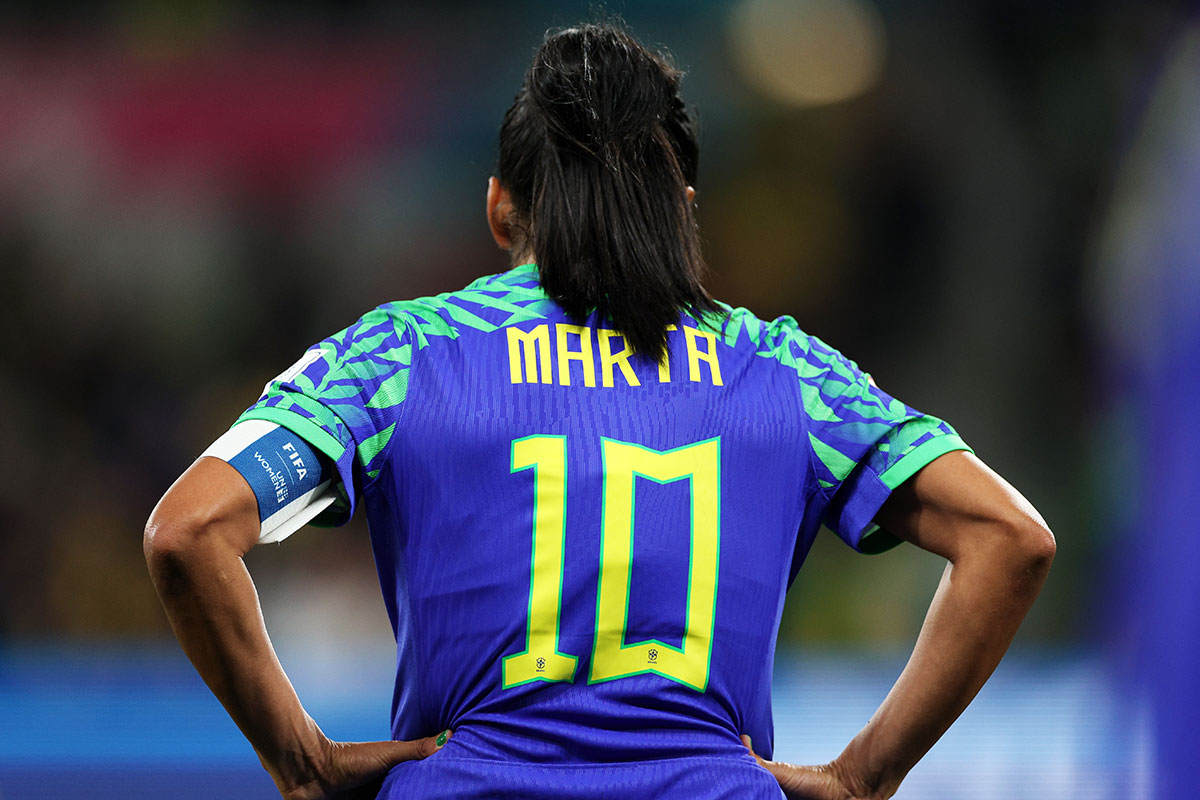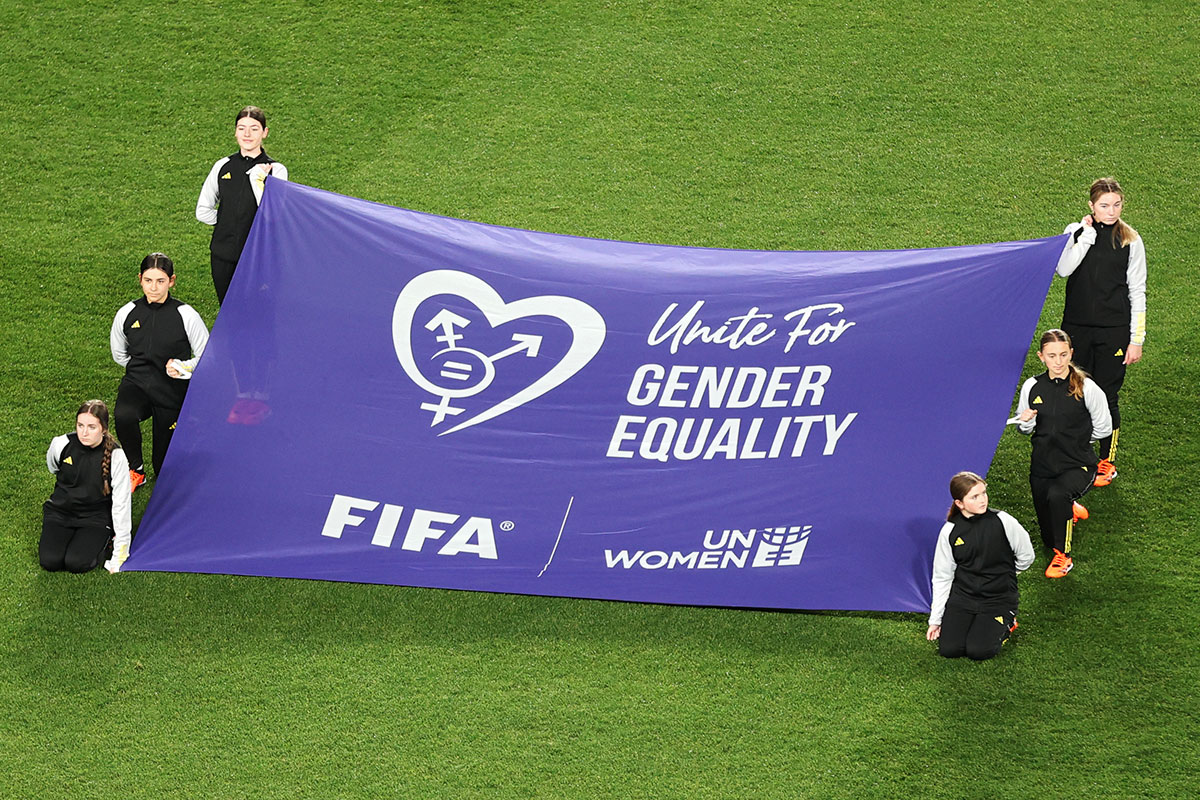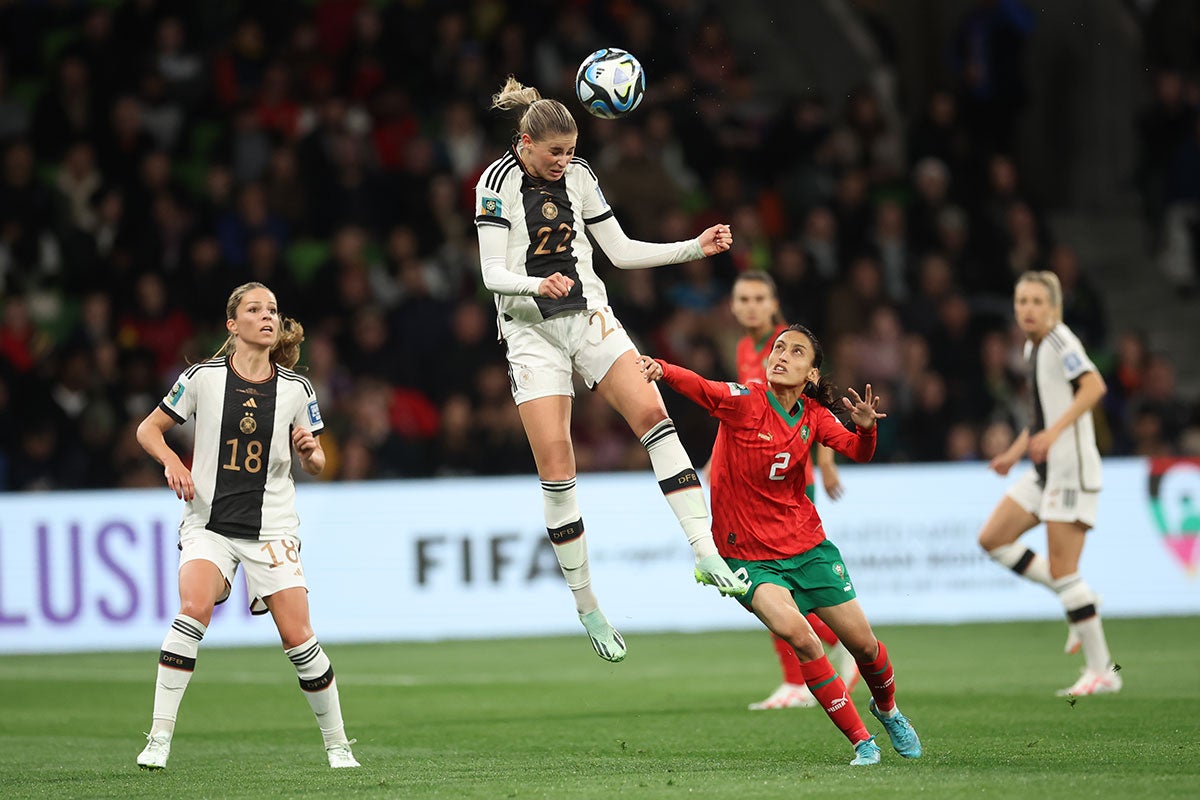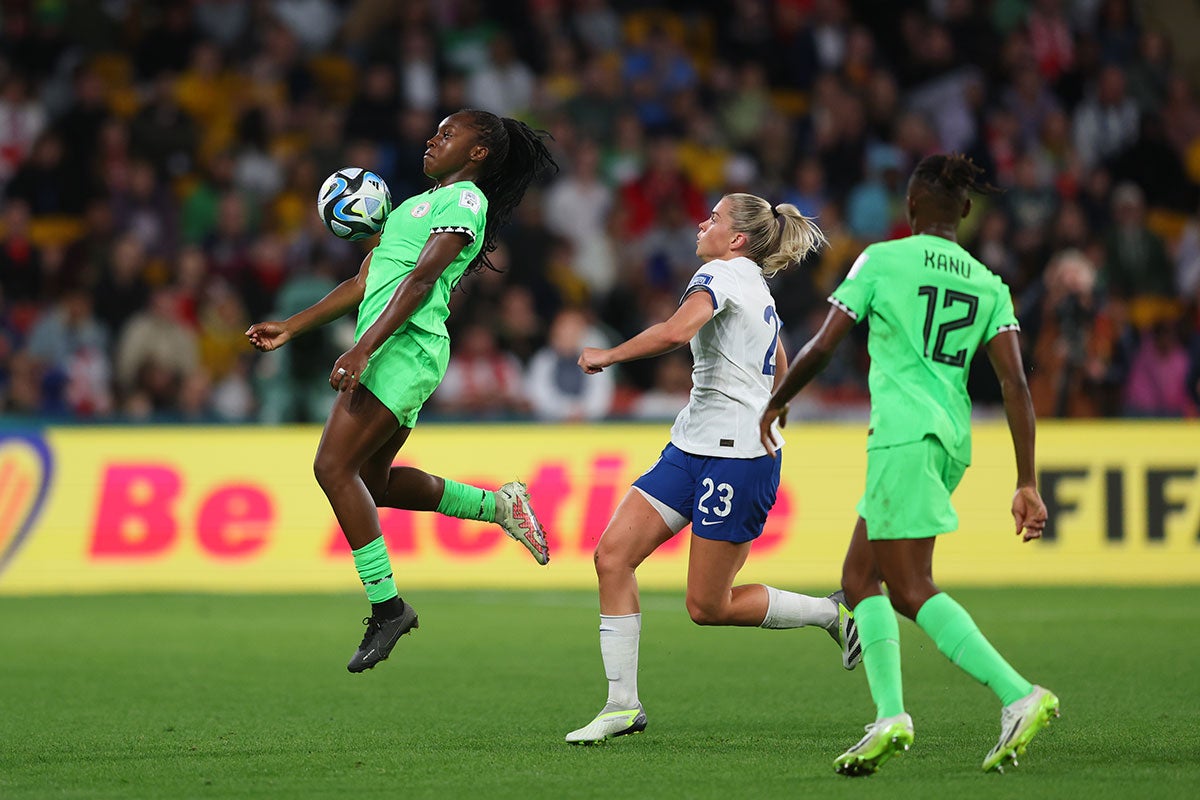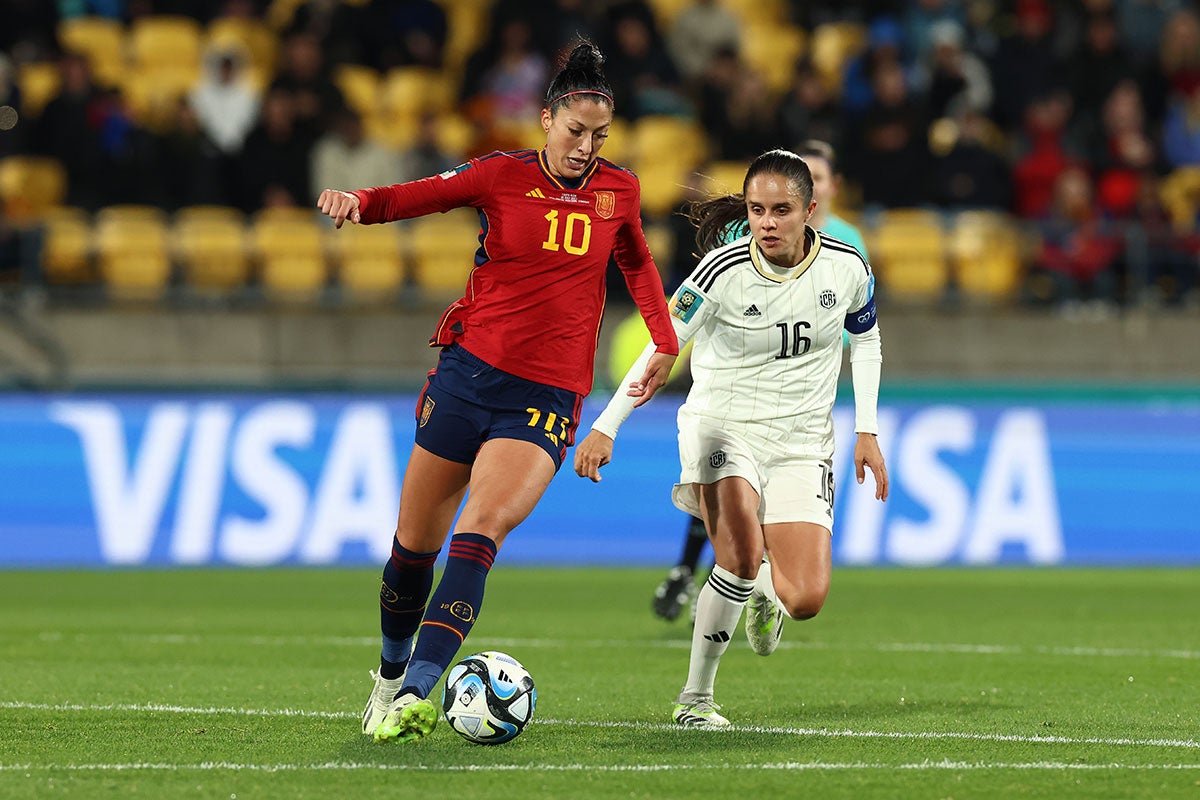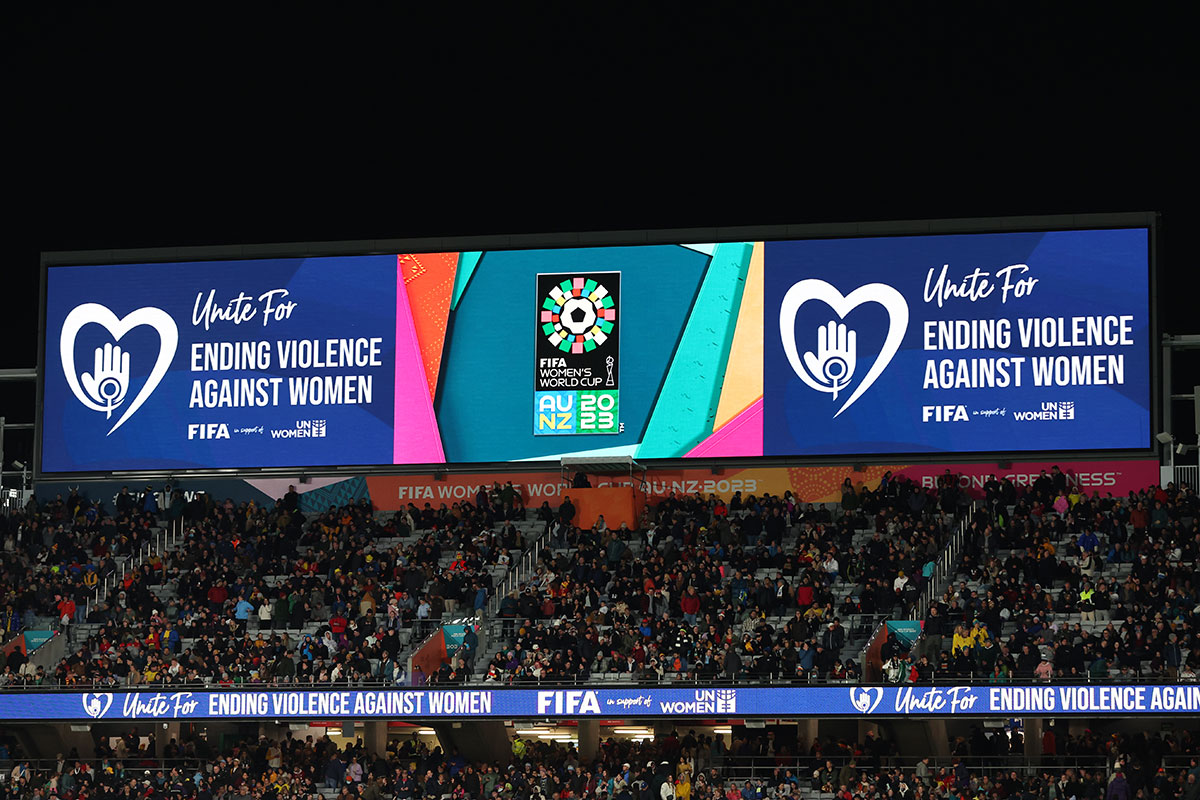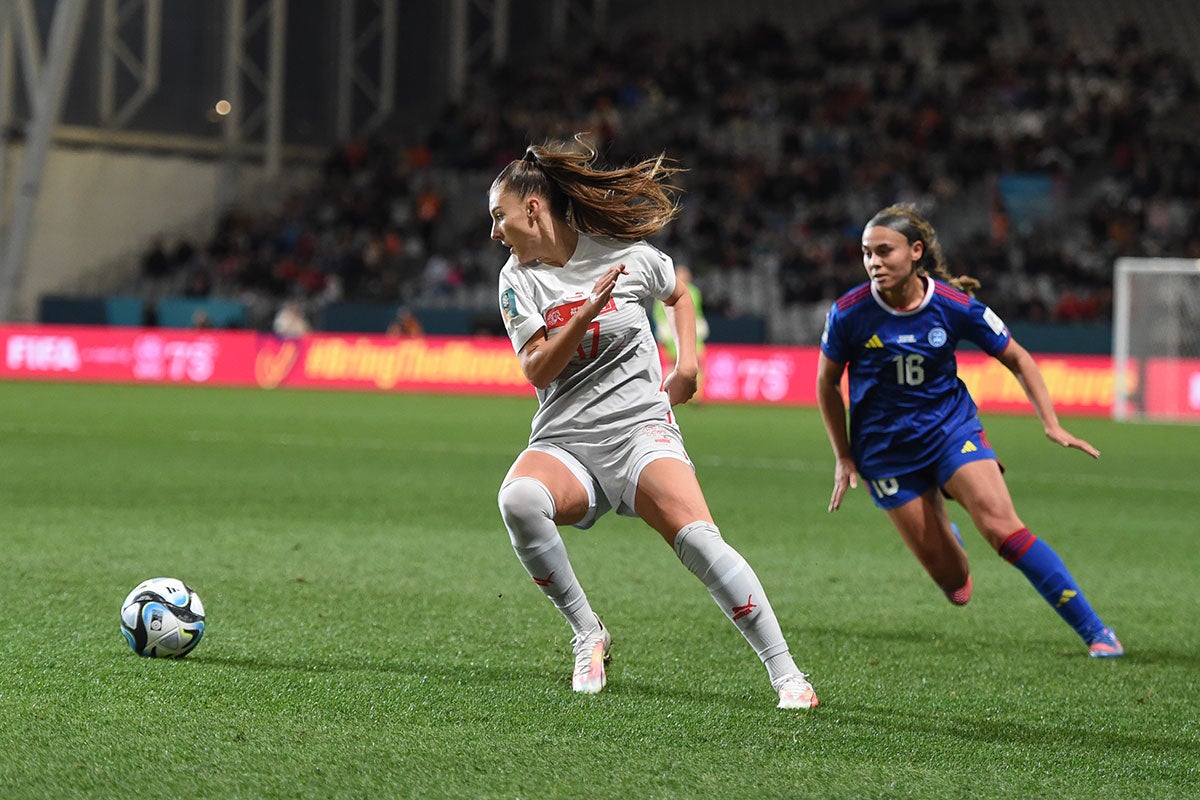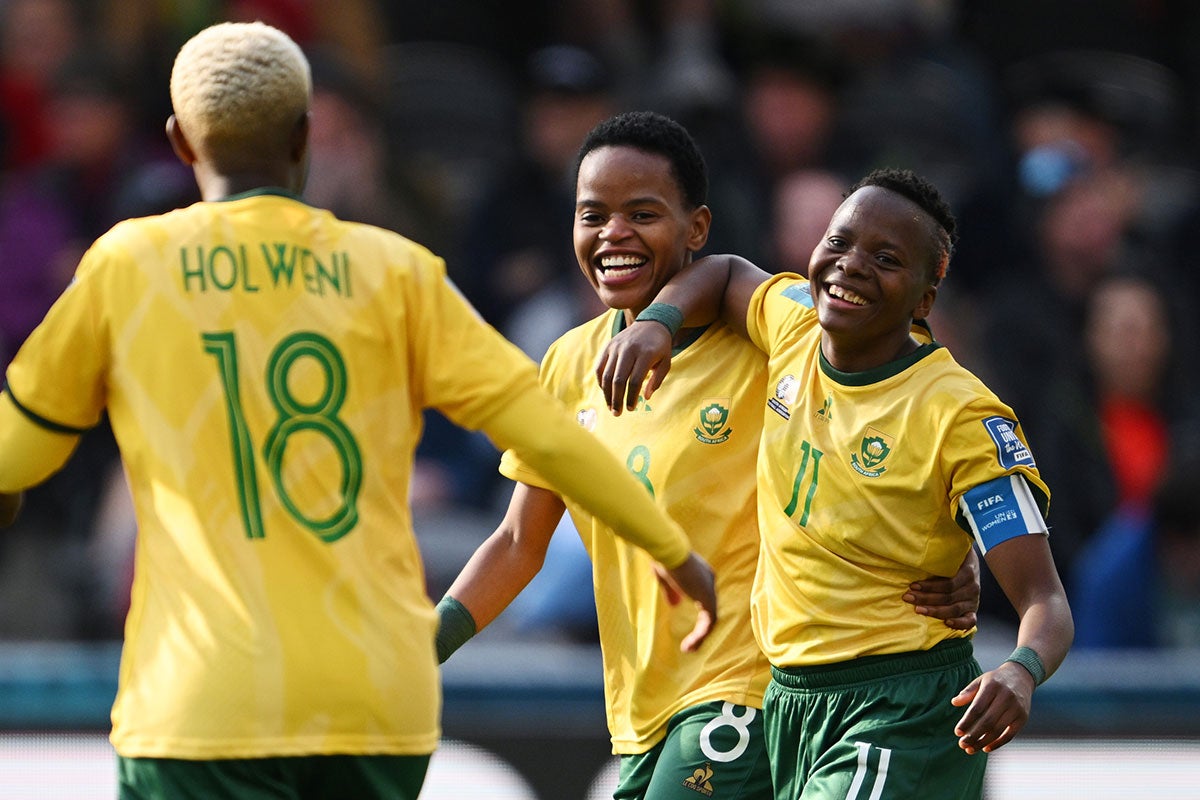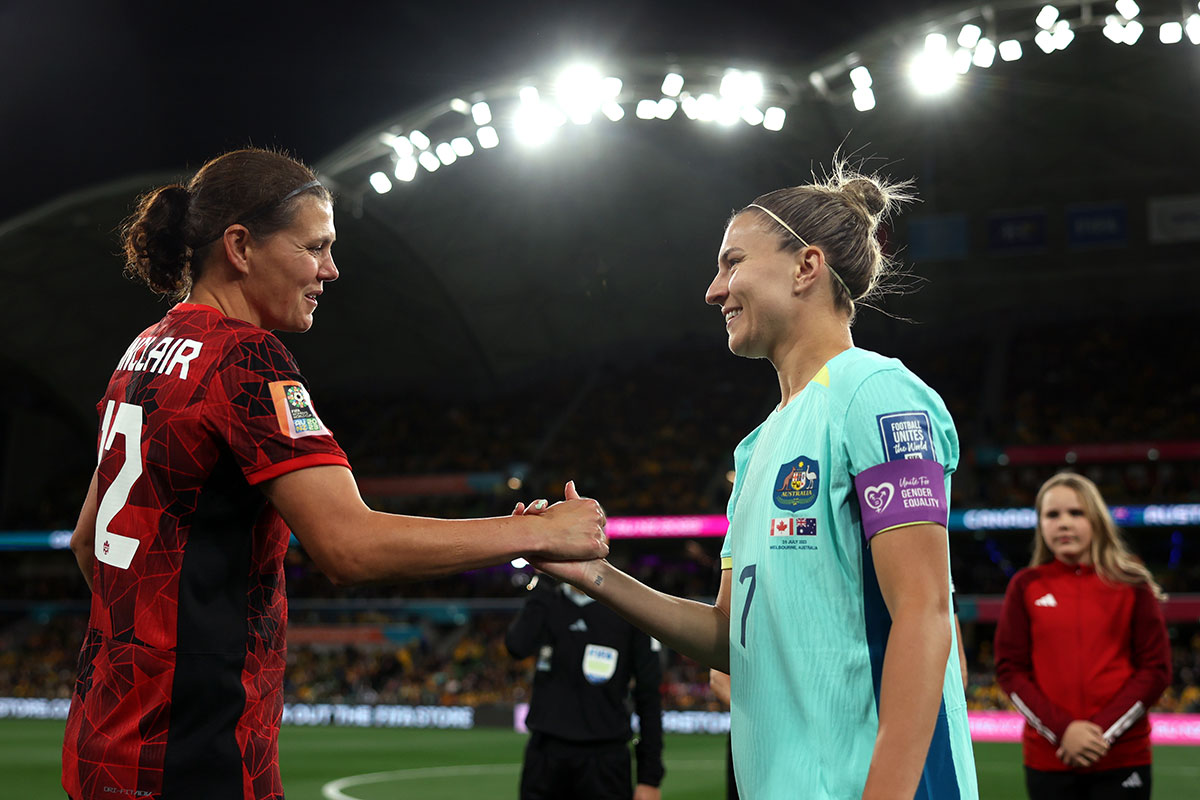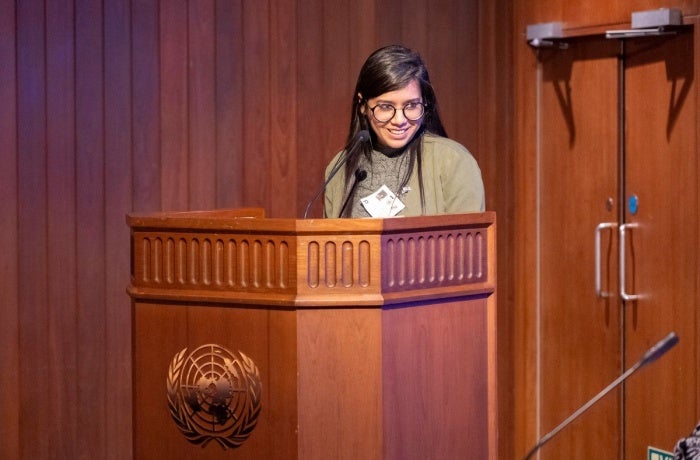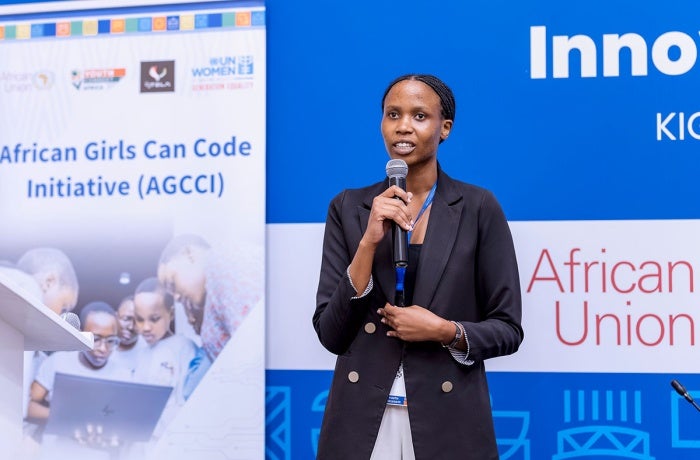FIFA Women’s World Cup™ 2023 – Game changer for gender equality
Did you watch the game? That is a question many people were asking in taxis and on the streets around the world. What they were really asking was, “Did you watch the Women’s World Cup?” The fact that it was just “the game” speaks volumes about just how far this World Cup has come in normalizing women’s sports and, by extension, women’s rights. When two billion people watch women play at this world-class level, it changes the way people perceive women’s capabilities and fuels the dreams and confidence of girls who see themselves going for goals too.
This World Cup has also raised global attention to the unfinished business of gender equality. Issues that normally do not get this kind of airtime are now on everyone’s lips. For example, we talk about equal pay as it relates to the women players, but the World Cup extended this conversation to the wider issue of the global pay gap across all jobs and all countries. Globally, women earn an average of 77 cents for every dollar that men take home for the same job. And this gap has not moved in 20 years.
UN Women applauds the International Association Football Federation (FIFA) for showcasing social issues during the tournament, in the form of the captains’ arm bands and on stadium LEDs that carried messages such as “unite for gender equality” and “unite to end violence against women”, complete with the UN Women logo, as well as additional messages endorsed by UN organizations.
One of the untold stories behind this World Cup is how, during the 2015 corruption scandals in FIFA, a group of determined women from football and other parts of the sports world demanded to be included at the FIFA decision-making table for the first time in more than 100 years. By 2016, these demands were largely included in the revised FIFA Constitution, with reserved seats for women in the executive committees. This was followed by the appointment of FIFA’s first female Secretary General, and the creation of the Women’s Football Division with an investment in 2019 of USD 1 billion to build the women’s game. In less than a decade, we see the results in the form of the largest women’s sporting event on the planet.
Maybe the biggest game changer for the Women’s World Cup is that, while in many parts of the world we are witnessing a roll-back of women’s rights, we see that football—and sports more broadly—are going in a positive direction: expanding opportunities and crushing negative stereotypes. Unfortunately, we have also seen the backlash in action in the form of toxic messaging on social media that targeted some of the World Cup’s biggest stars and teams. But the players continued to play and the fans continued to cheer.
This all bodes well for the future, as the girls who watched the tournament are tomorrow’s champions—perhaps on the pitch, but more importantly, they are tomorrow’s champions in life. We watch the Women’s World Cup to see amazing goals, but the real goal is gender equality, which will benefit us all.
Marta sums it up
In UN Women, we celebrate this historic Women’s World Cup as a game changer for equality. Our beloved Goodwill Ambassador, the living legend Marta Vieira da Silva, sums this up in her own words.
"We opened the doors to equality." 🙌
— FIFA (@FIFAcom) August 2, 2023
Ahead of @SelecaoFeminina's final group match at the @FIFAWWC, an emotional Marta reflects on her legacy in the women's game.
Legendary 💫 pic.twitter.com/EjJyXL9je1
Speaking to the media ahead of her team’s final group match, which ended her sixth and final World Cup, Marta stated:
“We now have players to look up to [in women’s football], and that would not have happened if we had stayed still at the first hurdle we faced. So, it’s about being persistent, and it didn’t just start with me, but with other players back then, and I’m very proud. And we ask the new generation to continue where we left off: continue to inspire even more girls and boys, no matter what age they are. … I’m happy to see that sort of thing, because 20 years ago in 2003, you all met Marta. That was my first World Cup. Twenty years later, I’m a player that inspired many women [to play football], and not just football, but [to get into sports] journalism as well. I see many female journalists here today that we just didn’t see back then. So, we opened the doors to equality.”







